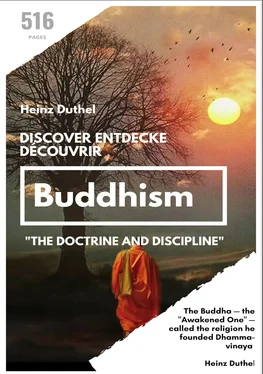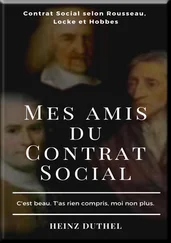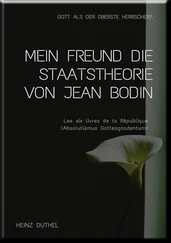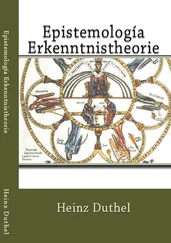2. Experiential Emphasis. Since wisdom or insight is the chief instrument of enlightenment, the Buddha always asked his disciples to follow him on the basis of their own understanding, not from obedience or unquestioning trust. He calls his Dhamma ehipassiko, which means "Come and see for yourself." He invites inquirers to investigate his teaching, to examine it in the light of their own reason and intelligence, and to gain confirmation of its truth for themselves. The Dhamma is said to be paccattam veditabbo viññuhi, "to be personally understood by the wise," and this requires intelligence and sustained inquiry.
Once the Buddha arrived at the town of a people called the Kalamas, who had been visited by many other ascetics. Each visiting teacher would praise his own doctrine to the sky and tear down the views of his rivals, and this left the Kalamas utterly confused. So when the Buddha arrived they came to him, explained their dilemma, and asked if he could offer some guidance.
The Buddha did not praise his own teaching and attack his rivals. Rather, he told them:
It is right for you to doubt; doubt has arisen in you about dubious matters. Come, Kalamas, do not rely on oral tradition, or on the lineage of teachers, or on holy scriptures, or on abstract logic. Do not place blind trust in impressive personalities or in venerated gurus, but examine the issue for yourselves. When you know for yourselves that something is unwholesome and harmful, then you should reject it. And when you know for yourselves that something is wholesome and beneficial, then you should accept it and put it into practice.
— AN 3.65
3. Universality. Because the Buddha's teaching deals with the most universal of all human problems, the problem of suffering, he made his teaching a universal message, one which was addressed to all human beings solely by reason of their humanity. At the time the Buddha appeared on the Indian scene the higher religious teachings, recorded in the Vedas, were reserved for the brahmans, a privileged elite who performed sacrifices and rituals for others. Ordinary people were told to perform their duties in a spirit of humility in the hope that they might win a more fortunate rebirth and thus gain access to the sacred teachings. But the Buddha placed no restrictions on the people to whom he taught the Dhamma. He held that what made a person noble was his personal character and conduct, not his family and caste status. Thus he opened the doors of liberation to people of all social classes. Brahmans, kings and princes, merchants, farmers, workers, even outcasts — all were welcome to hear the Dhamma without discrimination, and many from the lower classes attained the highest stage of enlightenment.
Within the wider Indian society the Buddha did not attempt to abolish the caste system, which, it seems, had not yet developed into the complex, oppressive system it became several centuries later. However, he flatly rejected the orthodox brahman view that a person's class status was an indication of his intrinsic worth. Within the Sangha, the monastic order, he completely disregarded all distinctions of social class, declaring,
Just as the waters of the four great rivers flow into the ocean and become known simply as the water of the ocean, so when people of all four social classes go forth as monks in my teaching, they give up their social status and become known simply as disciples of the Buddha.
— Ud 5.5
As part of his universalist project, the Buddha also threw open the doors of his teaching to women. Among the followers of Brahmanism, sacred teachings were the province of men. Women were to perform their domestic chores dutifully, to care for their husbands and in-laws, and to bear children, preferably sons. They were excluded from performing the Vedic rituals and even the teachings of the Upanishads were, with rare exceptions, the prerogative of men. The Buddha, in contrast, taught the Dhamma freely to both men and women. At first he hesitated to establish an order of nuns, since this would have been a radical step in his age; but once he agreed to create the order of nuns, women from all walks of life — princesses, housewives, daughters of good family, servant women, even former prostitutes — went forth into homelessness and attained the highest goal.
4. A Code of Ethics. One aspect of the Buddha's universalism deserves special mention: this is his conception of a universal code of ethics. It would be too extreme to say that the Buddha was the first religious teacher to formulate a moral code, for moral codes of different kinds had been laid down from the dawn of civilization. But it might not be farfetched to say that the Buddha was one of the very first teachers to separate out true moral principles from the complex fabric of social norms and communal customs with which they were generally interwoven.
With astute sophistication of thought, the Buddha provides for us an abstract principle to use as a guideline in determining the basic precepts of morality. This is the rule of "using oneself as a standard" (attanam upamam katva) for deciding how to treat others. From this abstract principle, he derives the four main precepts of his moral code: to abstain from killing, from stealing, from sexual misconduct, and from lying. In the interest of personal welfare and communal harmony he adds a fifth: to abstain from intoxicants. Together, these give us the Five Precepts (pañcasila), the basic moral code of Buddhism.
The Buddha, however, did not regard morality merely as a set of rules based on reasoning. He taught that there is a universal law which connects our conduct with our personal destinies, ensuring that moral justice ultimately prevails in the world. This is the law of karma and its fruit, which holds that our intentional actions determine the type of rebirth we take and the diverse experiences we undergo in the course of our lives. This law is utterly impersonal in its operation. It gives no one preferential treatment; it recognizes no VIPs or favorites, but works with absolute uniformity towards all. Those who violate the laws of morality — whether they be high class or low class, rich or poor — acquire unwholesome karma and must suffer the consequences: a bad rebirth and future misery. Those who adhere to the moral rules, who engage in virtuous conduct, acquire wholesome karma leading to future benefits: a good rebirth, a happy life, and progress on the way to final liberation.
In conformity with the psychological orientation of his teaching, the Buddha gave special attention to the subjective springs of morality. He traces immoral behavior to three mental factors called the "three unwholesome roots" — greed, hatred, and delusion; and he traces ethical behavior to their opposites, the three wholesome roots — non-greed or generosity, non-hate or kindness, and non-delusion or wisdom. He also directs us to a more refined interior level of ethical purity to be achieved by developing, in meditation, four lofty attitudes called the "divine abodes" (brahma-vihara). These are loving-kindness (metta), the wish for the happiness and welfare of all beings; compassion (karuna), the wish that all afflicted with suffering be freed from their suffering; altruistic joy (mudita), rejoicing in the happiness and success of others; and equanimity (upekkha), impartiality of mind. These four attitudes are to be developed universally, towards all beings without distinctions or discrimination.
Before I close there is one further feature of the Buddha's method that I want to mention. This is what might be called his "skill in means." Through his deep meditative attainments and his enlightened wisdom, the Buddha had the special ability to discover the precise way to teach the people who came to him for guidance. He could read deep into the hidden recesses of a person's heart, perceive that person's aptitudes and interests, and frame his teaching in the exact way needed to transform that person and lead him or her on to the path of freedom. The texts abound in many examples of this supreme pedagogic skill of the Buddha. Here I will relate just two famous instances.
Читать дальше












